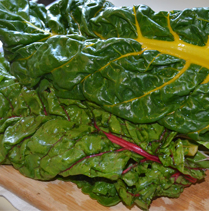
Choosing fruit and vegetables that are locally grown and currently in season can save money and give you more nutritional benefits than out-of-season produce.
Grocery shopping can be expensive, especially when it comes to produce. But serving your family a variety of fresh fruit and vegetables is such an important part of making sure they have a healthy, well-balanced diet, so what can you do?
What are the benefits of eating seasonally?
How, you wonder? Here are some facts about produce:
- When produce is ripe, it’s at its peak for taste and nutritional value.
- When produce is in season, it can be picked and delivered within hours of each other. As a result, the fruit and veggies you buy will be the freshest.
- When produce is shipped from another state or country, it is picked before it has reached its peak ripeness so that it will still be fresh when it is delivered.
- Once picked, fruits and vegetables no longer get nutrients from the stem of the plant they come from; therefore, they lack the amount of nutrients they would contain if picked when ripe.
- The nutrients in produce are lost every day from the time of harvest. So by the time you buy them, they may contain very few vitamins and minerals.
- Frozen fruits and vegetables are better than out of season fresh produce. The produce is picked when ripe and then flash frozen immediately, to retain the nutrients and flavor.
Because so many fruits and vegetables are shipped from one part of the country to another, people are getting less of the good stuff – nutrients – and more potentially harmful additives, like pesticides and preservatives that are often added to keep produce from spoiling while in transit.
How do you save money with local produce?
In addition to the great taste and bountiful nutrients you get from fresh, locally grown, seasonal produce, you will also save money – and who doesn’t like that?! Why is it less expensive? When produce is in season and the climate is right for its growth, a lot of a particular fruit or vegetable can be grown. Having an abundance of a product means the farmers don’t need to charge as much as they would if they only had a small crop. Also, locally grown produce doesn’t need to be shipped across the country, which means fewer costs for the farmer and cheaper produce for you.
Think about the cost of a box of blueberries. During the summer months when they are in season, a half-pint of blueberries will cost approximately $2.00. Come the fall and winter, the same half-pint will run you about double that. Do you really want to spend two times what you know you can get for less at other times of the year? Plus, is it really worth it when they won’t be as sweet and delicious as they were a few months before?
Will you still have variety?
Of course! To top it off, the added benefit of eating seasonal produce is that you and your family will get to enjoy a variety of fruits and vegetables. By sticking to what is in season, you won’t get bored of the same old thing and your kids will learn to eat a wider range of produce.
Read more about the benefits of locally grown produce.












